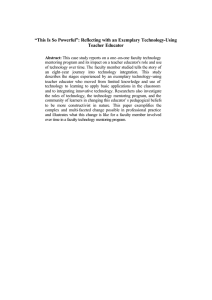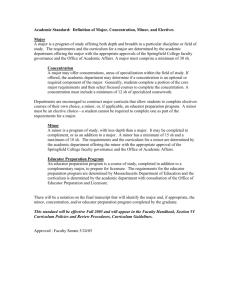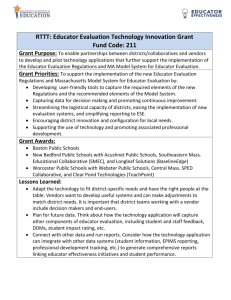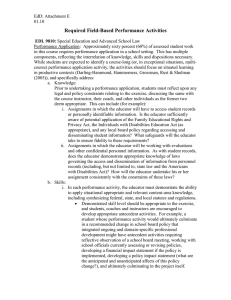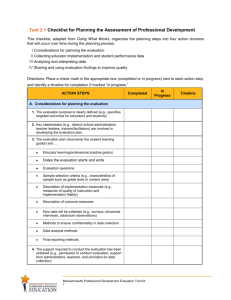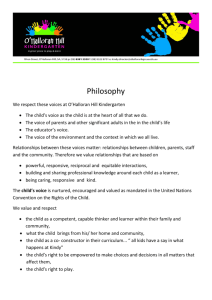Educator Effectiveness
advertisement
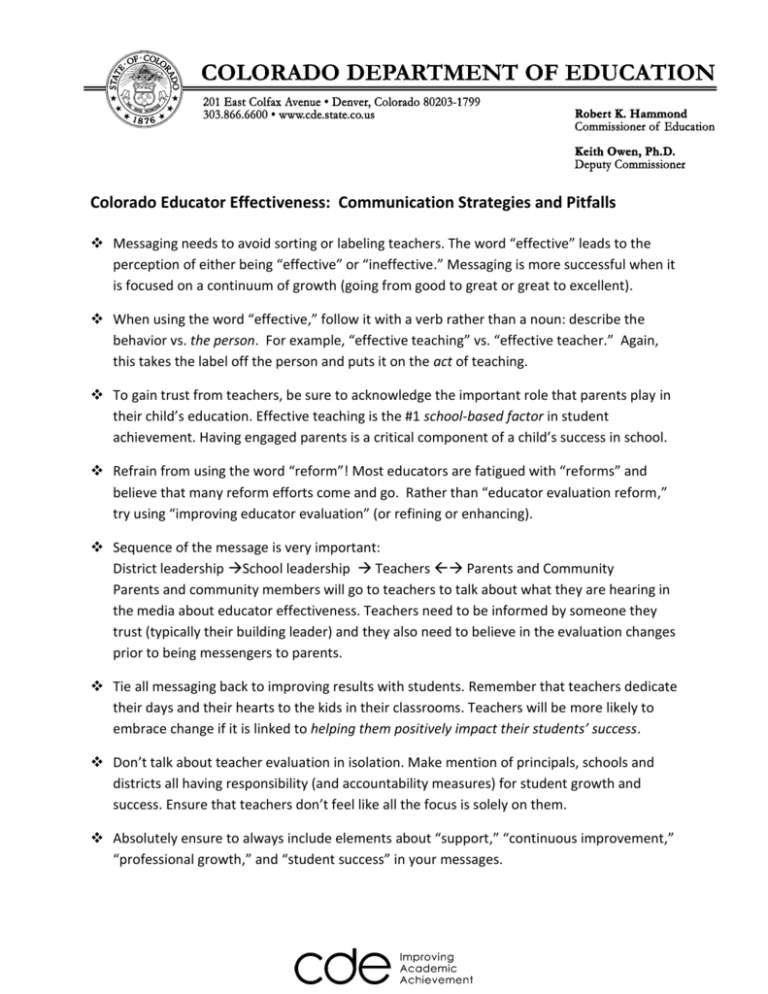
Colorado Educator Effectiveness: Communication Strategies and Pitfalls Messaging needs to avoid sorting or labeling teachers. The word “effective” leads to the perception of either being “effective” or “ineffective.” Messaging is more successful when it is focused on a continuum of growth (going from good to great or great to excellent). When using the word “effective,” follow it with a verb rather than a noun: describe the behavior vs. the person. For example, “effective teaching” vs. “effective teacher.” Again, this takes the label off the person and puts it on the act of teaching. To gain trust from teachers, be sure to acknowledge the important role that parents play in their child’s education. Effective teaching is the #1 school-based factor in student achievement. Having engaged parents is a critical component of a child’s success in school. Refrain from using the word “reform”! Most educators are fatigued with “reforms” and believe that many reform efforts come and go. Rather than “educator evaluation reform,” try using “improving educator evaluation” (or refining or enhancing). Sequence of the message is very important: District leadership School leadership Teachers Parents and Community Parents and community members will go to teachers to talk about what they are hearing in the media about educator effectiveness. Teachers need to be informed by someone they trust (typically their building leader) and they also need to believe in the evaluation changes prior to being messengers to parents. Tie all messaging back to improving results with students. Remember that teachers dedicate their days and their hearts to the kids in their classrooms. Teachers will be more likely to embrace change if it is linked to helping them positively impact their students’ success. Don’t talk about teacher evaluation in isolation. Make mention of principals, schools and districts all having responsibility (and accountability measures) for student growth and success. Ensure that teachers don’t feel like all the focus is solely on them. Absolutely ensure to always include elements about “support,” “continuous improvement,” “professional growth,” and “student success” in your messages.




